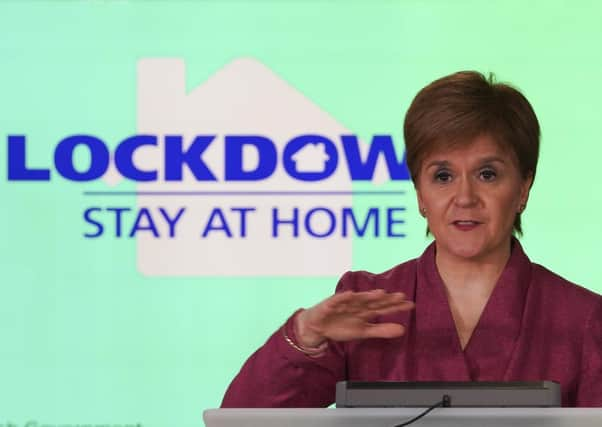First Minister confirms schools will stay closed until mid-February


The First Minister said that it is the government’s priority to get children back to ‘normal schooling’ as soon as possible, and added: “I know how much work, teachers, school leaders and other staff are doing to support home learning and I am very grateful to them for that, but I also know just how challenging and stressful this situation is for families and above all I understand how difficult, distressing and damaging it is for children and young people to have their education and their normal interaction with friends so interrupted.”
Ms Sturgeon confirmed that the decision would be reviewed on 2 February and concluded: “I hope that we can set-out then a firmer timetable for getting children back to school. I can say this today - if it is at all possible, as I very much hope it will be, to begin even a phased return to in-school learning in mid-February we will do that. But I also have to be straight with families, and say that it is simply too early to be sure about whether and to what extent this will be possible.”
Advertisement
Hide AdAdvertisement
Hide AdIn a statement, Comhairle nan Eilean Siar said: “Schools will continue to remain closed as per Scottish Government guidelines and will continue to make essential provision for children of key workers and vulnerable pupils. Except in Barra, where this provision is centralised to Castlebay School, all other provision is at the child’s regular school.”
Earlier in her statement to the Scottish Parliament confirming that the current lockdown restrictions would continue until at least mid-February, with the mainland and some islands in level 4, but with parts of the Western Isles, including the Uists, Benbecula, Harris and Lewis in level three.
Nicola Sturgeon said that Scotland was still “in a very precarious position” with regard to the impact of virus and the numbers of cases being dealt with by the NHS, but did strike a cautious note of optimism.
She said:“We believe that the lockdown restrictions and the sacrifices everyone continues to make are now beginning to have an impact. Case numbers that were rising rapidly appear to have stabilised and even declined.
Advertisement
Hide AdAdvertisement
Hide Ad“While the new faster spreading variant is now the dominant one in Scotland, the proportion of new cases with the variant appears to have stabilised at around two-thirds of all new cases. All of this is encouraging and we think it is a signal that the lockdown restrictions are working even against the faster-spreading variant.
“However”, the First Minister said, “it is important first of all to be cautious - we do need to see these trends continue to be more certain that this phase of the pandemic is now on a downward trajectory, and second we need to be realistic that any improvement we are now seeing at this stage is down to the fact that we are staying at home and reducing our interactions. Any relaxation of lockdown - when case numbers, even although they might be declining nevertheless remain very high - could quickly send the situation into reverse especially with the faster spreading variant now being so dominant.
“All of that means we cannot afford to see the rate of infections start to rise again, which from such a high base line it could all to easily do if we start to interact with each other more than we are doing right now.